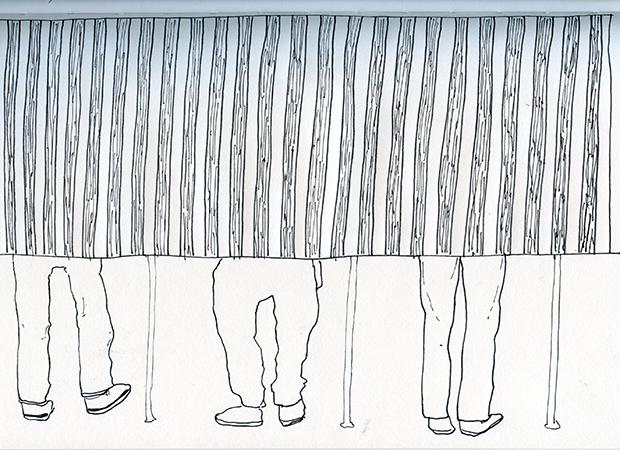Voting. It’s the most treasured cornerstone of our representative democracy. It’s the way citizens decide who governs them and what polices those who govern will employ. It’s a fundamental part of being American.
But the sacredness of voting is being threatened. Recent laws and restrictions passed in many states, aimed at eliminating voter fraud, are devaluing our definition of a republic.
The 2008 presidential election saw the highest voter turnout ever, with more than 130 million people showing up at the polls, according to the US Census Bureau. President Obama gained two-thirds of voters aged 18 to 29, 95 percent of blacks, and 55 percent of Hispanics, said politico.com
Obama needed these groups to win. So Republican-controlled state legislatures have responded by making it harder for these groups to vote.
In a supposed attempt to eliminate voter fraud in the upcoming elections, states such as Pennsylvania, Alabama, and Florida have passed new strict photo-ID voter laws that require voters to provide specific types of identification at polling places.
US News and Report reported in an article in September that a Republican-led investigation found “less than one-tenth of 1 percent of all registered voters” to be registered illegally.
Politically, it’s an ingenious strategy. But voter suppression is also why racist politicians were able to stay in office in the South until the Voting Rights Act of 1965, which banned literacy tests and other means of preventing certain populations from voting.
Pennsylvania tried to implement one of the strictest voter ID laws in the country, which would make it necessary for a voter to bring one of the following: an up-to-date, Pennsylvania-issued driver’s license, a current U.S. passport, or a state voter ID card to the polls, according to the National Conference of State Legislature’s website. However, in order to get the supposedly free voter ID card, one must provide a birth certificate (which costs Americans $10, and can be difficult to obtain for those born abroad), a Social Security Card, which requires several other documents, and two proofs of residency.
“The concept is unconstitutional and will suppress the vote of minorities, students, the poor, and the elderly,” said California State Senator Leland Yee. “Many people do not have government issued IDs – they may be older and not drive or they may live in a city with public transit. In addition, there is a cost to an ID, in essence creating a poll tax which the courts rightfully threw out generations ago.”
Yee recently passed a law in California making it possible for residents of the Golden State to register online and on the same day as Election Day.
For someone who doesn’t have a current driver’s license or passport — mainly those who are young or poor or people of color — voting suddenly changes from a right to a burden that may not seem worth the effort.
Even though the original intention was supposedly to eliminate voter fraud, Pennsylvania House Republican Leader Mike Turzai expressed other motives: “Voter ID … is going to allow Mitt Romney to win the state of Pennsylvania.”
The 2008 election brought the highest turnout ever, according to that same Politico article. But 64 percent is a shockingly low number for the record high according to Politico.com.
“As a model example of a democratic government, it is embarrassing that our voter participation rates are as low as they are,” said Yee.
As students, it’s our responsibility to set the tone of our generation by encouraging our peers to get involved.
“The more individuals who vote, the more likely elected officials will address the concerns of those people,” said Yee. “Many people died for the right to vote and I believe we all have a responsibility to participate in our democracy.”
Voting. It’s not something you play with as part of a political agenda. No, it’s something that every American should be able to do, regardless of what state he lives in or what types of identification he has.
This editorial represents a consensus view of the Legend staff. We invite responses in our comment section, or email us at urbanlegendstaff@gmail.com


